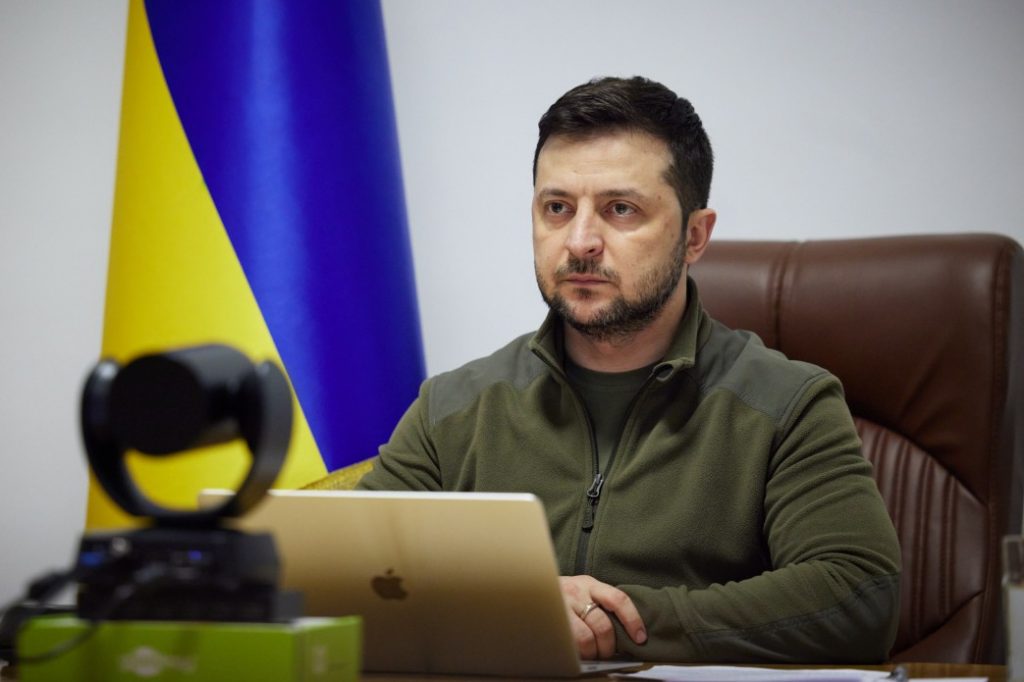

The emerging geopolitical landscape demands an idealism grounded in humility
I still have no words adequate to bear the weight of what we are seeing in Ukraine. As a human being and a historian, I have been trying to construct some kind of helpful account that could make some sense of it all. All I have this morning are scattered thoughts.
I know enough Russian and Soviet history from graduate school to recognize the narratives that Vladimir Putin draws on to justify his actions in Ukraine. I know of the long-held and quite understandable fear of enemies on the Western front, given Russia’s geographic vulnerability. Each century of modern Russian history has brought its invaders—first the Swedes, then Napoleon and the French, and then Hitler and the Nazis. And yes, the story of Ukraine has been intertwined for centuries with Russia’s story—sometimes by choice, sometimes by coercion. No question about that. It is in fact as one friend well-versed in Russian history asked: “How would we feel if Canada were to be too friendly to powers hostile to American interests?” It makes me wish that rather than focusing on the idea that the West had “won” the Cold War we had instead applied the lesson of Post-World War I Germany and sought to address Russia’s sense of humiliation in 1991. But it is all too late for that now.
I also know of the tradition that goes back to the 1648 Treaty of Westphalia, persisting in the nineteenth-century ideology of nationalism, and embodied in the United Nations Charter of 1945 that honors the territorial autonomy of nation-states. Of course, there is much messiness around the notion of a “nation” and what exactly makes a people group worthy of that designation in the international community. But self-recognition has been a key part of this justification, and the Ukrainians have arguably made their case as a legitimate nation-state. It is understandable, even prior to consideration of the Cold War, that the European community is coming to their defense.
But what to do? The fear of precipitating a nuclear war has hung over the world since that awful day in August 1945 when we saw the devastation wreaked on Japan by bombs much less powerful than what is in today’s nuclear arsenal. Our options for responding to the Russian-Ukrainian war are limited by that paralyzing fear. But fear of nuclear war is not the only limiting factor in the current response. The inextricable intertwining of the global economy makes it challenging to punish Russian interests without also affecting those of our own—and those of our allies.
I have little doubt that we are witnessing one of those world-changing moments that historians will look back on long after we are gone. A new order is taking shape without the formal symbols of the 1815 Congress of Vienna, or the 1919 Versailles Treaty. Or even the less formal 1945 agreements of Yalta and Potsdam, and the even less formal, but more visible sign in the 1989 fall of the Berlin Wall. Nonetheless, a new world order is taking shape, and the West, which has long had the political, economic, and military power to “call the shots,” must learn how to function effectively in this new landscape.
It is not as if the West itself can claim unblemished moral superiority as it seeks to call out and address the horrific atrocities that are coming to the fore in Ukraine. Collectively there is much for the rest of the world to point to when it wants to shame the West, including America’s recent hasty and painfully executed departure from Afghanistan. In fact, the West has often fallen short of its own ideals—but, arguably, at least we have these ideals: the Rule of Law, respect for human rights, collective security, and self-determination. There is yet the legacy of English Common Law, the ideals of the Enlightenment, the principles of the Geneva Conventions, and so forth. Historically speaking, we in the West have been given the privilege and charged with the responsibility to hold out these ideals—not in a spirit of arrogance nor for our own self-interest but rather in humility, for the sake of the entire human community.
As I seek to come to terms with the realities of this moment in our world, I am glad to be walking through the Lenten season of the Church calendar. This is the time when Christians are invited to focus on the belief that God, the Creator of this wondrous and mysterious world has also, in the second person of the Trinity, entered experientially into the utter vulnerability of the human condition. We are reminded of the choice that Austin Farrer articulated so well when discussing the classic problem of human suffering: “An overmastering sense of human ills can be taken as the world’s invitation to deny her Maker, or it can be taken as God’s invitation to succor his world. Which is it to be?”
As I continue to follow the unfolding tragic drama in Ukraine, I wait hopefully for our world leaders to move beyond narrow national interests and the paralysis born of our worst fears, and to imagine new options that have the potential to produce lasting peace in Eastern Europe. The way forward diplomatically is not clear. What is clear is that I must do what I can to contribute in some small way, supporting those both inside and outside Ukraine and Russia who are seeking to alleviate the suffering, and thus to stand in solidarity with the entire human community in what has become a significant moment in world history.
Shirley A. Mullen (PhD) is President Emerita of Houghton College and longtime history professor.